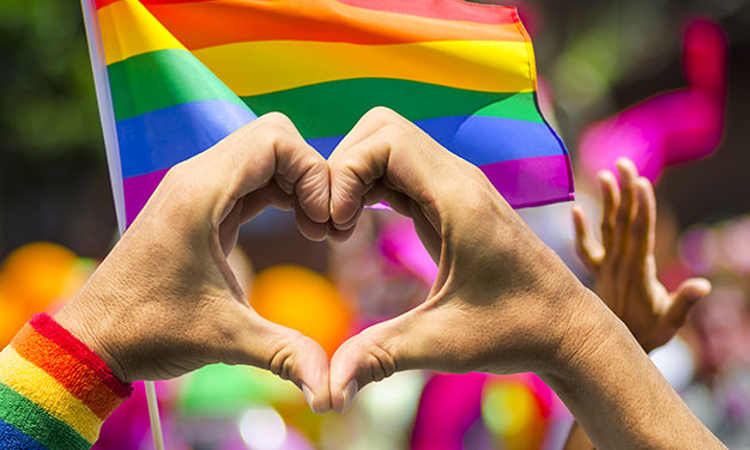Same-Sex Marriage: Still A Pending Wish In 2025?
Rizmi Lia
26 Feb 2025 3:21 PM IST
As New Year resolutions soar for many, homosexual individuals in India remain denied the basic right to marry. Despite constitutional guarantees of equality, judicial and legislative roadblocks continue to marginalize LGBTQIA+ individuals. The question lingers: is marriage equality still an unfulfilled promise in 2025?The Long Road to RecognitionIndia has made significant strides in...
As New Year resolutions soar for many, homosexual individuals in India remain denied the basic right to marry. Despite constitutional guarantees of equality, judicial and legislative roadblocks continue to marginalize LGBTQIA+ individuals. The question lingers: is marriage equality still an unfulfilled promise in 2025?
The Long Road to Recognition
India has made significant strides in recognizing LGBTQIA+ rights, but progress has been uneven. In 2018, the Supreme Court's landmark ruling in Navtej Singh Johar v. Union of India decriminalized same-sex relationships by striking down Section 377 of the Indian Penal Code. This decision brought immense hope to the community, but legal recognition of same-sex unions remained elusive.
The optimism following the Navtej judgment was short-lived. On October 17, 2023, the Supreme Court, in a five-judge bench led by Chief Justice D.Y. Chandrachud, unanimously refused to recognize same-sex marriages as a fundamental right, stating that legislative intervention was required. The ruling, which included Justices Sanjay Kishan Kaul, Ravindra Bhat, Hima Kohli, and P.S. Narasimha, placed the onus on Parliament to enact marriage equality laws.
On January 9, 2025, the Supreme Court dismissed a review petition in the Marriage Equality Case, again refusing to grant legal recognition to same-sex marriages. As the fight for justice persists, one must question whether fundamental rights come with conditions.
Nepal: A Beacon of Hope
In contrast, India's neighboring Nepal has taken commendable steps toward marriage equality. On June 28, 2023, the Supreme Court of Nepal passed an interim order in the case of Pinky Gurung v. Government of Nepal, instructing the government to temporarily register same-sex marriages, including for individuals with “other” gender markers.
On November 29, 2023, Maya Gurung and Surendra Pandey became the first same-sex couple to register their marriage in Nepal, making Nepal the first South Asian country to recognize same-sex marriage. Despite challenges, this ruling has marked a positive step forward. The court stated, “We urge the Nepal government and our policymakers to amend the marriage law in our Civil Code to make the definition of marriage inclusive and ensure equality for everyone.” Even though this was an interim order, it set a precedent for progressive action—something India has yet to achieve.
Nepal's progressive stance demonstrates that judicial intervention can accelerate social change, particularly when legislative action lags. India, however, remains stagnant despite its constitutional commitment to equality.
Legislative Inertia and Continued Discrimination
Since the Indian Supreme Court's verdict, which disappointed those who believe in the constitutional principle of equality, there has been no progress on this front. The judges have placed the responsibility on India's lawmakers to bring about meaningful change. This includes ensuring that every citizen not only enjoys equality under the law but also has access to the rights necessary to live a life of true equity—such as the freedom to marry, raise a family, and enjoy all legal benefits afforded to heterosexual couples.
For many within the LGBTQIA+ community, the fight for marriage equality intersects with the fight for caste and class-based equity, with marginalized communities facing additional societal and systemic hurdles. Unfortunately, the current government, which opposed the decriminalization of Section 377 in 2018, appears unlikely to address this gap on its own.
India's LGBTQIA+ community enters 2025 still grappling with limited rights. Despite abiding by the law, paying taxes, dreaming of happy families, and deeply loving their country, they remain denied the equality they deserve. Even if same-sex couples cannot marry, the absence of legal recognition means they cannot access critical rights such as adoption, inheritance, and tax benefits, further reinforcing their second-class citizenship in the eyes of the law.
The Inconsistencies in Legal Rights
The Supreme Court, in its historic ruling in Shakti Vahini v. Union of India, affirmed that the right to choose a life partner is part of the freedom of choice and expression guaranteed under Articles 19 and 21 of the Constitution. Yet, when it comes to queer individuals, does this right come with an unspoken condition? Is there a pause before the promise of equality for homosexual citizens?
What explains this silence in the law on such an important issue? With a glaring legislative gap, whom can queer individuals turn to—the government that once resisted the decriminalization of Section 377, or the judiciary that has left them in limbo?
Religious and cultural beliefs often serve as significant barriers to the recognition of same-sex marriage in India, with conservative voices frequently invoking tradition as a reason to deny equality. These deeply ingrained cultural values often lead to discrimination and marginalization, which further complicates efforts for legal reform. While Indian society is slowly evolving, media portrayals of LGBTQIA+ individuals—often as stereotypes or marginalized figures—continue to perpetuate harmful narratives that stall meaningful legislative reform.
The Path Forward
Despite legal setbacks, the fight for equality continues. Civil society organizations, activists, and LGBTQIA+ allies persist in their efforts through petitions, protests, and policy advocacy. As public awareness grows, media representation improves, and global precedents influence domestic discourse, India stands at a crossroads.
The road to equality is long, but history has shown that social change is inevitable. With sustained pressure, legal challenges, and shifting public opinion, India may one day follow Nepal's lead. Until then, same-sex marriage remains a pending wish—one that millions of LGBTQIA+ individuals hope will soon be granted.
The struggle for marriage equality in India is far from over. While the judiciary defers to the legislature, and the legislature remains silent, queer individuals continue to be denied the right to love and marry freely. The question remains: how much longer must they wait?
Views Are Personal.



